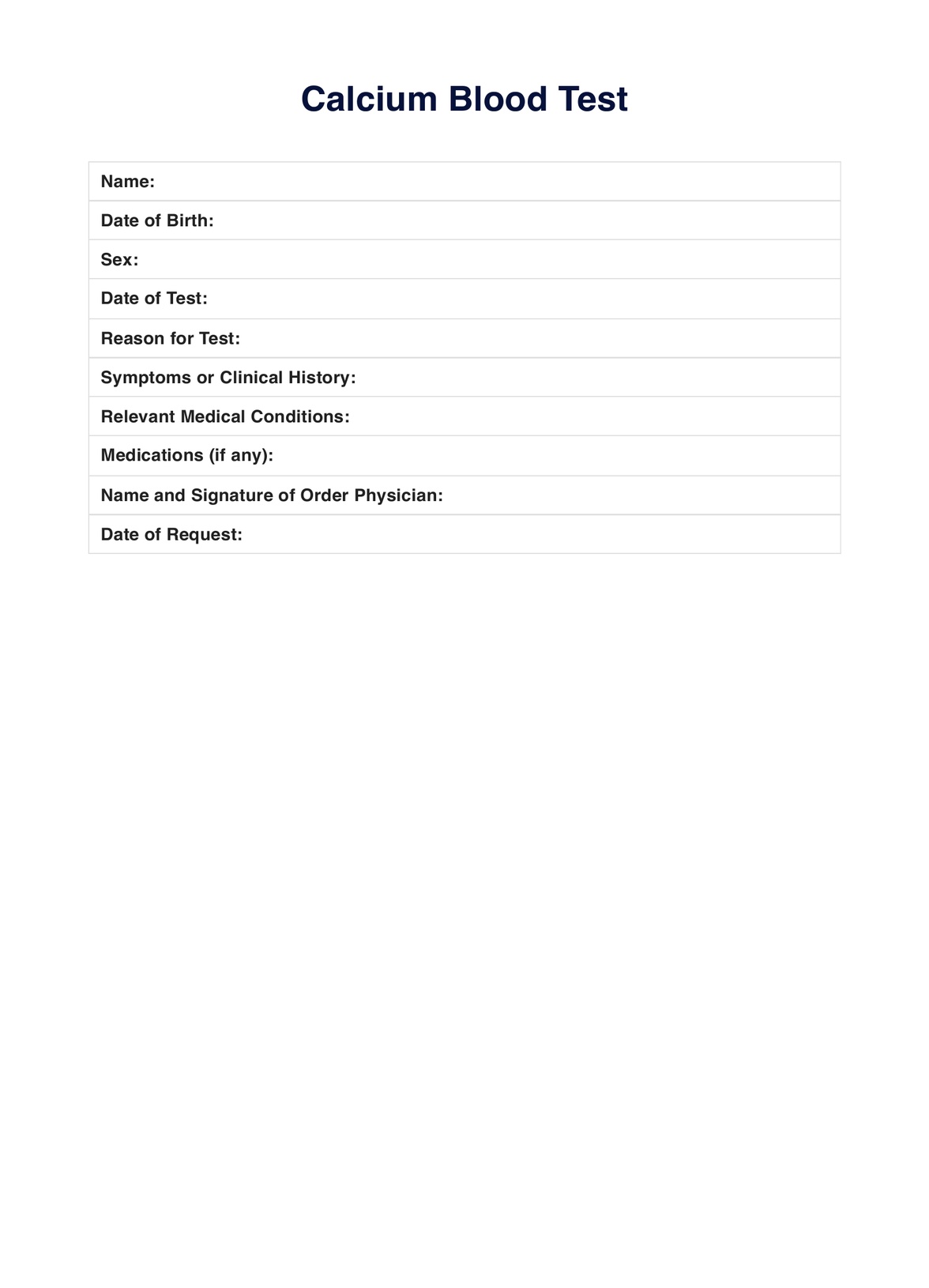General physicians and nurses typically request a calcium blood test.

Calcium Blood
Know more about the calcium blood test, its result interpretations, and when to use it with this short guide.
Use Template
Calcium Blood Template
Commonly asked questions
Calcium blood tests are used to assess a patient??s condition when they exhibit symptoms or during routine bloodwork, diagnose any conditions they have, and monitor treatments/medication.
The collection of blood samples can only take a few minutes. However, the analysis and interpretation can take a few hours, depending on the practitioner in charge and laboratory.
EHR and practice management software
Get started for free
*No credit card required
Free
$0/usd
Unlimited clients
Telehealth
1GB of storage
Client portal text
Automated billing and online payments











